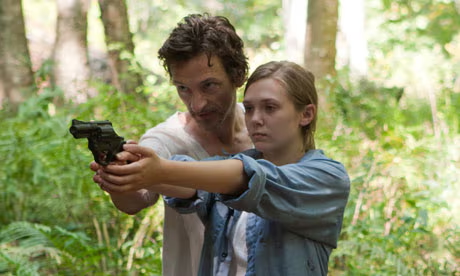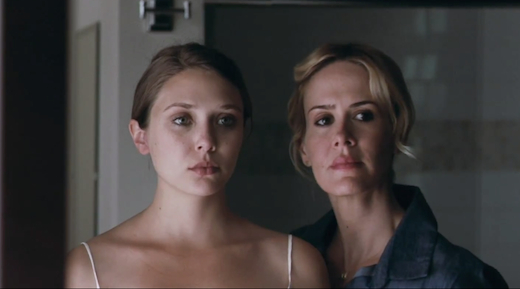Martha Marcy May Marlene (2011)

Martha Marcy May Marlene (2011) is a psychological thriller directed by Sean Durkin, starring Elizabeth Olsen in her breakout role. The film follows a young woman, Martha, who escapes from an abusive cult in the Catskills and struggles to reintegrate into normal life while haunted by paranoia and traumatic memories.

Plot Summary
Martha (Elizabeth Olsen) flees a rural commune and seeks refuge with her estranged sister, Lucy (Sarah Paulson), and Lucy’s husband, Ted (Hugh Dancy). Though she refuses to talk about what happened, her erratic behavior—such as skinny-dipping in broad daylight and having inappropriate outbursts—raises concern.

Through a series of disjointed flashbacks, the audience gradually learns about Martha’s life in the cult, where she was renamed “Marcy May” by its charismatic but controlling leader, Patrick (John Hawkes). He manipulates and exploits his followers, enforcing submission through psychological abuse, gaslighting, and even acts of violence. The women in the group are groomed into compliance, including Martha, who struggles to separate herself from the identity forced upon her.

As the past and present blur, Martha’s paranoia grows—she begins to believe that the cult is watching her and might come after her. Her inability to distinguish reality from memory leads to tension with Lucy and Ted, who don’t understand the depth of her trauma.
Themes & Interpretation
The film explores trauma, identity, and psychological manipulation. It presents a fragmented narrative that mirrors Martha’s mental state, making it difficult for both her and the audience to discern what is real. The ambiguous ending leaves viewers questioning whether Martha is truly safe or if her past is still lurking.
Critical Reception
Martha Marcy May Marlene received widespread critical acclaim, particularly for Elizabeth Olsen’s powerful and nuanced performance. The film was praised for its unsettling atmosphere, haunting cinematography, and slow-burning psychological tension.
Would you like a deeper analysis of any aspect, like the ending or themes?











